Generation Z is defined by those born between 1995 or ’98 and 2010, but to simplify, let’s just say that Gen Z was born between the mid-90s and 2010. That means Gen Z is made up of guys and girls between the ages of 9 and 24.
According to this study from WP Engine, 55% of Gen Z is dying to get online at least every five hours; many can’t make it longer than an hour without squirming. (To compare, Baby Boomers – born between 1946 and 1964 – can go at least a week before missing the Internet too much.)
When it comes to Generation Z vs. millennials, the main difference is that millennials watched the advent of digital media, while Gen Z grew up with it – they don’t know anything else. All of the innovations that millennials saw unfold in real time were givens once Gen Z was born. And because they’re so used to it, they’re less impressed by it (yet still heavy users and, in some cases, reliant on it).
It’s interesting to note that Gen Z prefers face-to-face communication in some instances, especially when it comes to business and entrepreneurship. According to WP Engine, “Gen Z gravitates toward a unique mix of trends, which both embrace the future and respect certain aspects of the past. Communicating with this generation successfully requires taking the time to understand those nuances then acting accordingly.”
Everything from website design to marketing campaigns must suit Gen Z’s demands and expectations. Here’s what you need to know about Generation Z marketing:
- 1 It’s a globalized generation.
- 2 The recession created deeper concern for the future.
- 3 Social media is a go-to for researching buying decisions…
- 4 Actually, they want to partner with you.
- 5 They care about value, quality and realness…
- 6 Brands should know what customers want before customers even know what they want.
- 7 You can have a mobile app, but it’s not necessary.
- 8 Wrapping Up
It’s a globalized generation.
Millennials were technically the first global generation, but Gen Z is the first generation to have always had the world at their fingertips. Because of that, they’re more comfortable with and adept at interacting with international peers and following global news.
The recession created deeper concern for the future.
Generation Z grew up during the recession, which made them realistic about their future. They’re hard workers, similar to how some of our grandparents were influenced by the depression. They care about money, savings and retirement, and they don’t want debt.
They still spend, and will spend, a lot.
Don’t let that fool you. They are spending ($143 billion globally), and they’re influencing household spending decisions.
Generation Z is turning to social media to discover brands, research products and finalize their purchase decisions, with Instagram and YouTube being popular platforms-of-choice for these purposes.
…and so are friends and family.
According to the Center for Generational Kinetics, 48% of Generation Z says they tend to get input from friends and family before buying something. The study explains, “This could be a generational statement about who Gen Z most trusts or it could be related to their current life stage. It will be interesting to see if this changes as Gen Z gets older and accumulates more consumer experience.”
Either way, brands need to know that the customer experience and word-of-mouth are important. If more customers review and recommend your products and services, you have a better chance of influencing Gen Z to buy.
Those Gen Z shoppers will also provide the feedback you’re looking for. According to Accenture, “40 percent said they provide feedback often or very often compared to about 35 percent of Millennials.”
Actually, they want to partner with you.
Gen Z is unofficially dubbed “the influencer generation.” They’ve had a camera pointed at them since birth; some have had social media accounts since they were still in the womb. They each need to feel special, a unique snowflake worthy of attention. They want to work with their favorite brands as social media #ad partners or brand ambassadors.
Decide if affiliate partnerships or influencer campaigns are right for your brand. If they’re not, there may still be a way to get Gen Z involved by asking them for contributions. You can have them name a new product, create graphics for a marketing campaign or suggest a limited-time flavor.
A happy medium may be sharing customer posts on social media. It’s less time-consuming than creating a branded contest and you won’t have to place your trust in influencers. You can simply re-post the content you like the most and give a shout-out to the original content creator. American Eagle does this on Instagram with their #AExME campaign:
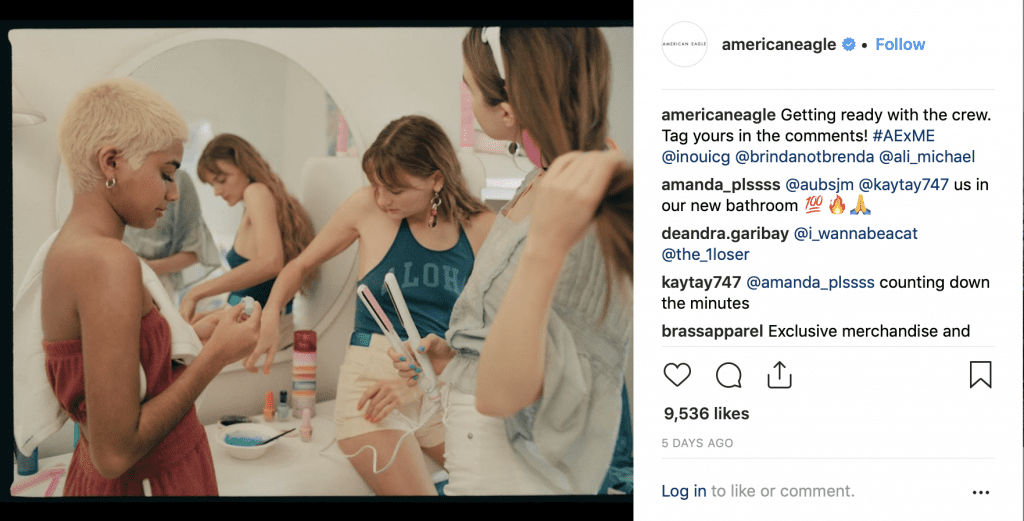
They care about value, quality and realness…
Gen Z cares much more about quality than quantity, and they don’t want to waste their time figuring out what you can do for them. They want to know the end game from the get-go. Brands should lead by answering the question, “How will we improve your life?”
They also want reality. (A reality in which they’re treated as a social media celebrity, but still.) In content and marketing, use Photoshop-free images as much as possible, and try to feature real customers, not models.
P.S. You also have to stand for something: Gen Z cares if you’re socially conscious or not. Dedicate an entire website page to how you give back or how your customers can give back via your brand, and make sure to use that messaging in your marketing, too.
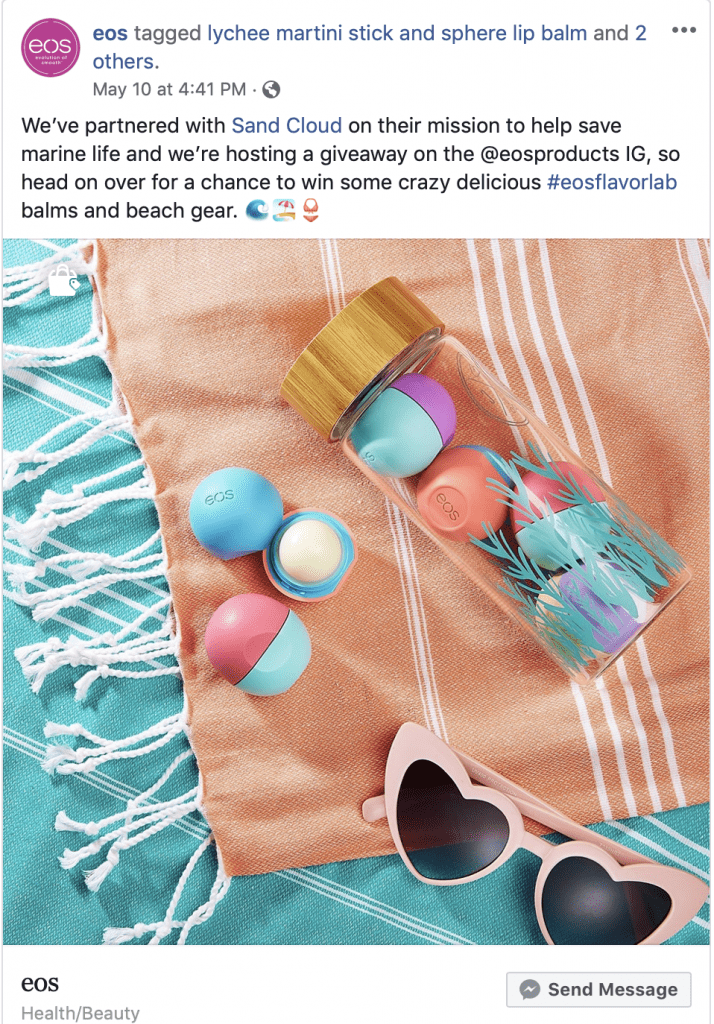
…but they really care about entertainment.
WP Engine says that 66% of Gen Z uses the Internet mainly for entertainment. To reiterate, more than half of Generation Z’s primary goal when going online is entertainment.
You don’t need to create a branded video game; you just have to give them something unexpected and interesting.
Skittles has a social media presence as colorful as the candy itself:
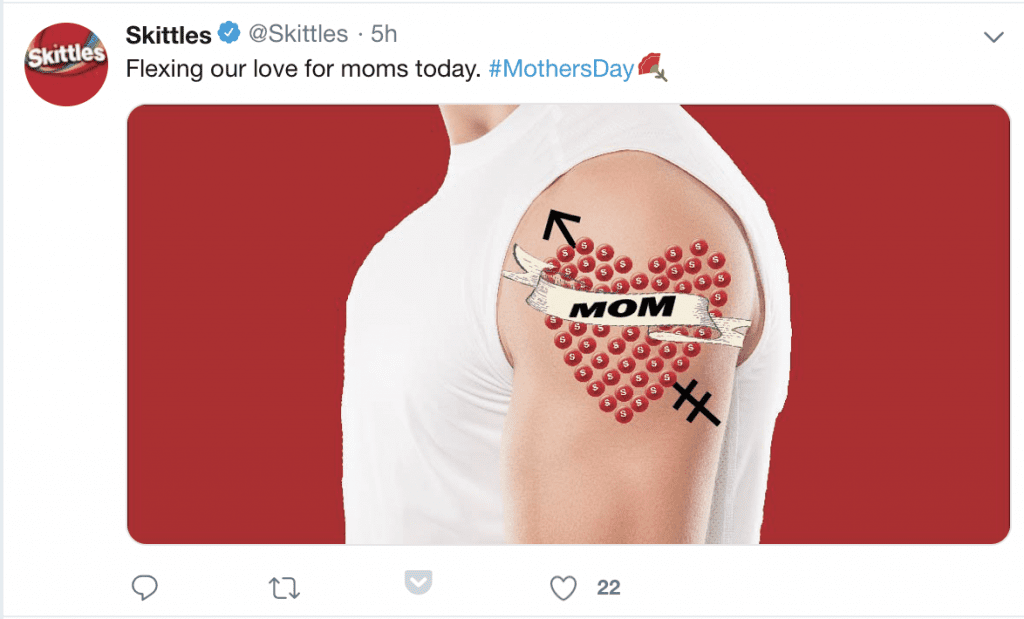
Old Spice has a lighthearted website, evoking the same bizarre humor its commercials are known for:
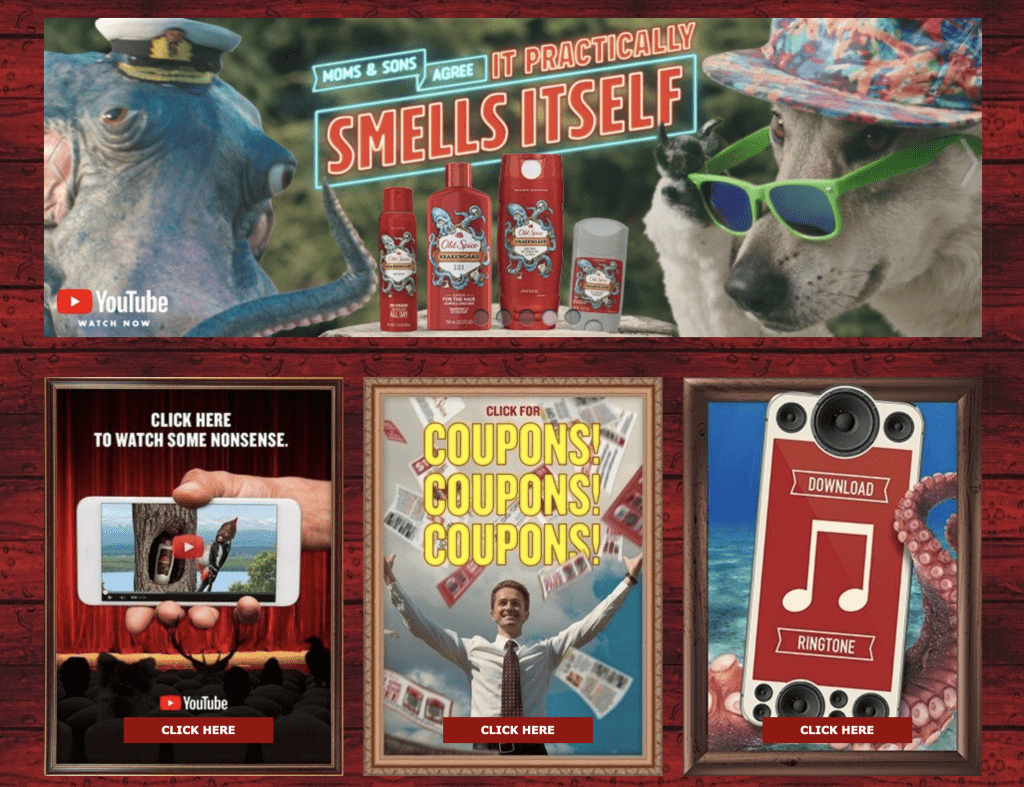
What’s especially great is if you can inject entertainment into even the most basic website components, like Oreo did with their cookies warning:

When entertaining, brands should stay true to their personality. If you have a serious presence, you don’t need to jolly it up for the sake of Generation Z – that will come off as inauthentic.
For example, Intel has a Meet the Makers series to show how people are using tech to create cutting-edge experiences. The videos entertain without turning Intel into a company it’s not.
Entertainment doesn’t have to be complicated.
Unless you’re designing a website from scratch, don’t start panicking that you have to do a full-scale redesign to incorporate entertaining aspects, or shoot an entire web series, or rebrand to be more fun and joyful. Here’s an easy hack: discover what’s most engaging about your social media accounts and then replicate that elsewhere.
Gymshark does this on their blog. The comments section at the bottom of a post has emojis so readers can offer super quick feedback in a way they’re familiar with:
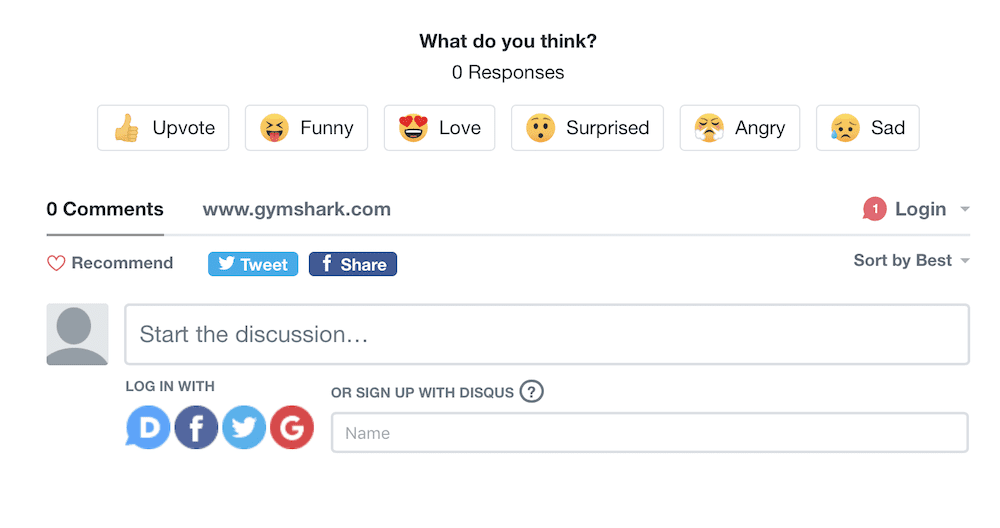
If your Facebook is especially engaging when you post a live video, consider doing that on Instagram as well, and maybe create behind-the-scenes or day-in-the-life posts for your blog. If surveys are a big hit on Twitter, add one to your next newsletter. Don’t reinvent the wheel – take what’s already working and maximize its potential.
Brands should know what customers want before customers even know what they want.
That WP Engine study showed that 68% of Gen Z believes that websites will know what visitors want before they tell them. In order to get that type of customized experience, 44% of Gen Z is happy to hand over their data.
Gen Z wants customized offers that meet their buying preferences, habits or location. Brands need to recognize the customer’s identity immediately and tailor the on-screen experience to them.
You know how you’ll be talking about something with your friend, an upcoming vacation to Hawaii, for example, and then you’ll go onto Facebook and there will be ads with discounts for hotels in Hawaii, or you’ll log in to Amazon and see luggage as a suggested purchase? And how everyone over the age of 20 will go, “See, they’re listening, take all of your personal information offline and live in a bubble”? Well, Gen Z loves that. They love going online and seeing an experience that’s meant just for them.
For brands, it’s really about paying attention to what customers are doing and then catering your products, services or offers to them. The customer-brand connection should be partially completed so the rest of the process is simplified. Even something like a “find a store” search bar on a website removes a barrier to entry.
You can have a mobile app, but it’s not necessary.
WP Engine reports that 61% of Gen Z would rather use a website than an app when making an online purchase. If you have a mobile app, you don’t have to get rid of it – just make sure your website is also user-friendly. If you don’t have a mobile app, don’t prioritize it – they can be pricey and difficult to make, and it’s not a must-have right now.
Wrapping Up
Even if you have a slightly older demographic, Generation Z is coming. Knowing what you need to do and what you don’t have to worry about right now can help you create a highly targeted marketing strategy. For brands that have mastered the art of marketing to millennials, some of these tips will sound familiar, while others will require new thought processes and a strategy refresher.
Once you get your new strategy or campaigns up-and-running, you’ll want to measure effectiveness. Familiarize yourself with KPIs to keep your marketing on track.
It should also be noted: I purposely left customer loyalty programs off this list because I just wrote all about it – you can see the article here.
If you have any questions, please drop us a line in the comments section below!







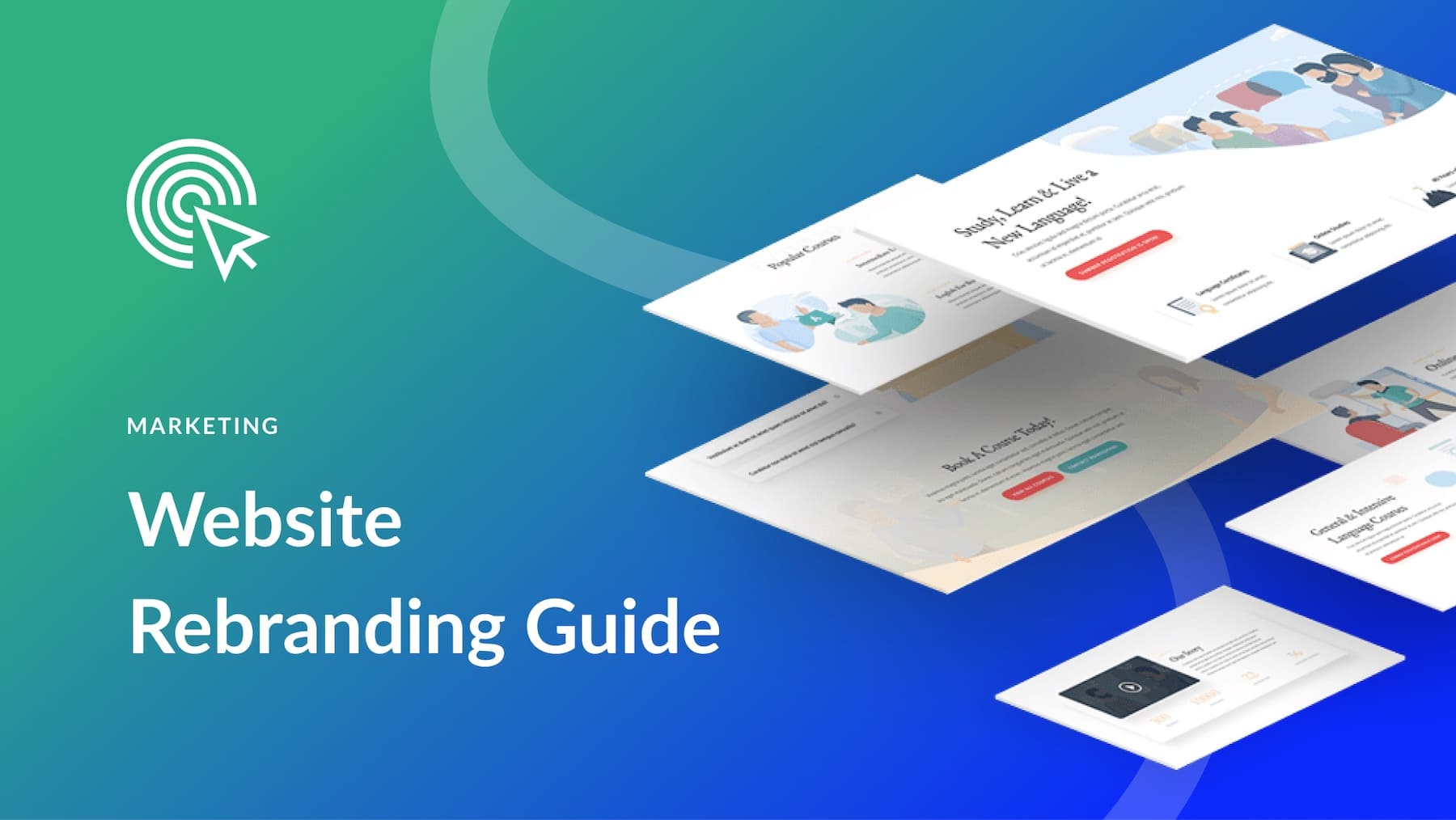
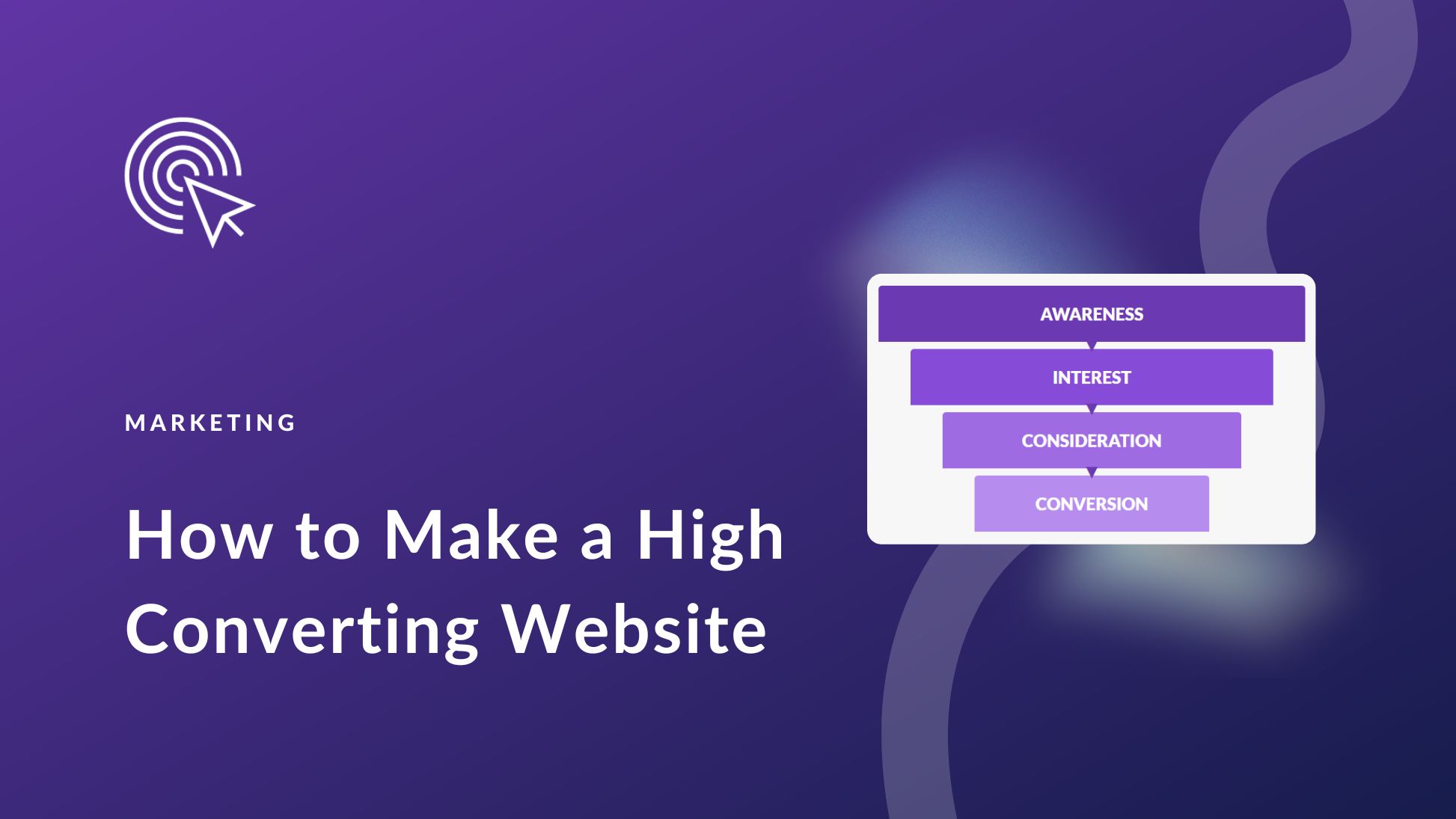
Leave A Reply